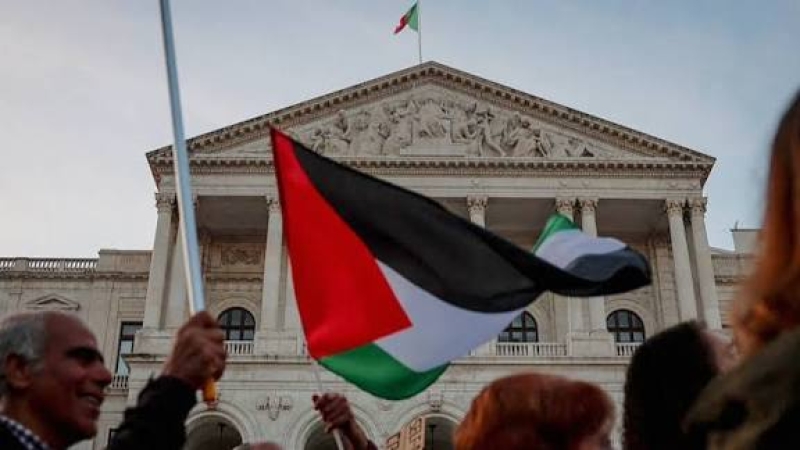- UAE Suspends Visas for Bangladesh, Eight Other Nations |
- Young disabled people of BD vow to advocate for peace |
- World Leaders Urged to Defend Human Rights and Justice |
- Vegetable prices remain high, people buy in small quantities |
- Off-season watermelon brings bumper crop to Narail farmers |
Portugal to recognise Palestinian state before UNGA conference

Portugal has announced it will officially recognise a Palestinian state on Sunday, joining a growing number of Western nations ahead of a high-level United Nations General Assembly (UNGA) conference on Palestinian statehood.
In a statement on Friday, Portugal’s Ministry of Foreign Affairs confirmed that the formal declaration will take place on September 21, a day before the UNGA conference.
Prime Minister Luis Montenegro finalised the decision after consultations with the president and parliament, ending nearly 15 years of debate in the Portuguese legislature, local daily Correio da Manhã reported. The proposal was first introduced in 2011 by the country’s Left Bloc political party.
Portugal’s move comes just days after a UN inquiry concluded that Israel’s war on Gaza amounts to genocide. Since October 2023, at least 65,141 Palestinians have been killed and 165,925 wounded in Israeli attacks, with thousands more believed to be trapped under rubble.
Lisbon had first signaled its intention to recognise Palestine in July, citing the worsening humanitarian crisis and Israel’s ongoing threats to annex Palestinian land.
Earlier on Friday, an adviser to French President Emmanuel Macron said that Andorra, Australia, Belgium, Luxembourg, Malta and San Marino also plan to extend recognition, alongside France, at Monday’s high-level meeting in New York co-hosted with Saudi Arabia. Canada and the United Kingdom have announced similar steps.
These countries will join around 147 UN member states — nearly 75 percent of the global body — that had already recognised Palestinian statehood as of April this year.
Portugal was also among 145 countries that voted on Friday to allow Palestinian President Mahmoud Abbas to address the UNGA by video after the United States denied him a visa. The US, Israel, Paraguay, Palau and Nauru voted against the motion, while six countries abstained.
Israel and the US have strongly criticised the wave of recognitions. US Secretary of State Marco Rubio called France’s decision “reckless” and accused it of serving “Hamas propaganda.” Israel’s Finance Minister Bezalel Smotrich previously warned that Tel Aviv would establish a new illegal settlement in the occupied West Bank for every country that recognised Palestine.
Meanwhile, Luxembourg has indicated it will follow suit. Prime Minister Luc Frieden and Foreign Minister Xavier Bettel told a parliamentary commission that the country intends to recognise Palestine at the UNGA. Bettel also said he would propose legislation to enable sanctions against Israel, broadcaster RTL Letzebuerg reported.
Francesca Albanese, the UN special rapporteur on human rights in the occupied Palestinian territory, has urged countries to go further by imposing sanctions and an arms embargo on Israel.
The UNGA’s 1947 partition plan had allocated 45 percent of the land for an Arab state. At the time, the assembly had only 57 members, with many nations still under colonial rule unable to vote, reports UNB.

